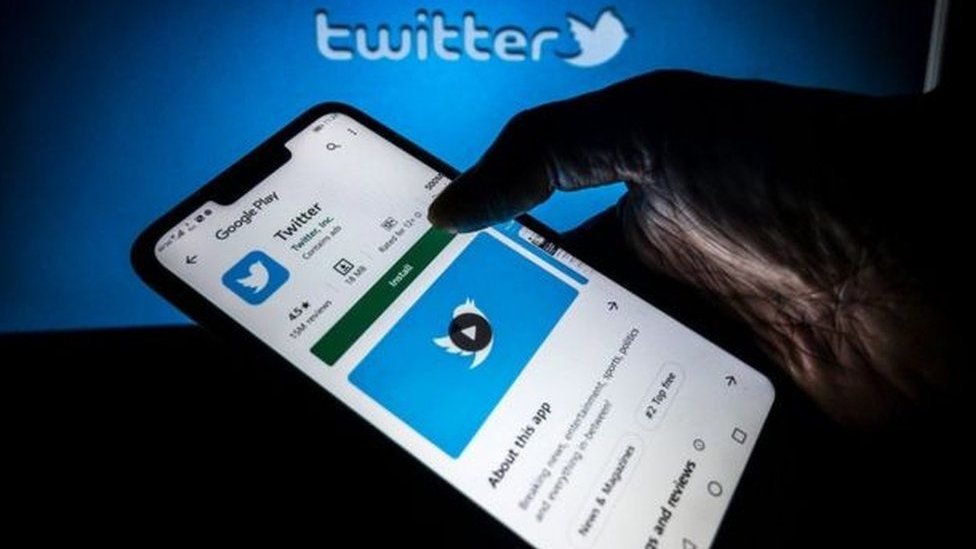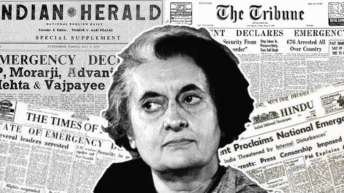|
Listen to article
Getting your Trinity Audio player ready...
|

In these days of technology explosion, people are information- fogged. Many are more interested to read instant microblogs than full-blown blogs or newspaper articles to get news, especially on political goings-on. Twitter is a microblogging app widely used. The users convey their opinion compressed in minimum words. That spreads faster and often gets amplified. Government departments of many democracies make use of Twitter to convey their policies within no time to people.
Certainly, during the Covid-19 second wave in India, Twitter was the most used social media platform to help the needy expeditiously. However, during the protests about the repeal of CAA, after the abrogation of Art-370 and in the recent Farmers agitation against the three new Farm-laws, opponents used their free-speech to portray India in a poor light to the world on Twitter with their # Hashtag campaigns. Twitter, of late, has been behaving, as a torch-bearer of free speech but selectively according to its own guidelines.
Freedom of Speech is not an “absolute” fundamental right, (as is in the U.S.,) in the Indian Constitution. India being a liberal democracy, Free Speech however is much-valued. Knowing that without freedom of speech other fundamental rights would be trampled upon, it has its place in the statute. Free-speech is called the key-stone of all fundamental rights. However, the founding father of the Constitution, Dr B. R. Ambedkar argued in the constituent assembly, while framing the laws, that it (free-speech) should not be made “absolute”. This is, keeping in view the sovereignty and integrity of the country. Then, there were no 24/7 satellite T.V. channels, no Internet, no social media platforms disseminating messages (good or bad) in a fraction of a second. They did not envision the chaos present now. Yet, in their wisdom they kept the caveat/check on free-speech.
All democracies in the world are facing acute challenges from social media with the diffusion of disinformation and fake news. The Central Government on 25 February 2021, laid down some rules and regulations/guidelines for all Intermediaries i.e., Search Engines (in addition to the: Information Technology Intermediary Guidelines Rules-2011 of UPA Govt). These include Digital Media Ethic Code i.e., the nature of duties to be discharged under the conditions of ‘due diligence’ so as to get exemptions for the acts of the third party (the users). Google, YouTube, Facebook-WhatsApp (barring the encryption issue pending in court), Amazon etc., showed compliance with the orders of the Govt of India, but not Twitter Inc. Since these media platforms are based in the U.S; the Government of India asked for a Chief Compliance Officer, a nodal contact person for 24/7 coordination who would act as a resident Grievance Officer in India. As a matter of fact, the European Union and many nations have already regulated as per their country norms.
The Indian Government instructed these intermediaries to publish the guidelines on its website in effect that their content should not be: defamatory, obscene, pornographic, paedophilic, invasive of another privacy, harmful to children and should not threaten the unity, integrity, defence, security or sovereignty of India. The intermediary should provide information sought by the Government agency for the purpose of verification of identity for cyber security incidents.
Apart from the above, the Government of India is keen to check fake videos and audio messages. The recent attack on an elderly man in Ghaziabad; Uttar Pradesh, though reprehensible, was falsely given a communal angle. The man apparently being from a minority community and his complaint, communally surcharged, was lapped up by many- so-called celebrity-activists/journalists who claimed that India is intolerant of minorities. Later, the U.P. Police clarified that there is no communal angle as it resulted from a personal feud between some individuals, where he was thrashed. Now the matter is sub-judice. Some journalists jumped the gun because the incident was interpreted through their core psychological and political prejudices.
Twitter, by violating the deadline set by the Government, lost its legal indemnity/Safe-Harbour status. However, the microblogging app sought time to establish an appropriate local office for Twitter Inc with the advice of consultants in India. Twitter told the Union Government that it needed to establish its office prior to hiring the Complaint Compliance Officer and other officers on a permanent basis which would take time. In the recent meeting of the parliamentary standing committee on June 18, the ruling and the opposition parties were in unison. They asked Twitter to follow the rule of the land. While agreeing to work with the committee, Twitter officials adamantly told that they would follow their own policy. Finally, a few days ago, Twitter appointed an India-based grievance officer, Vinay Prakash as the resident grievance officer for India.
Like Nigeria, India being a democracy cannot ban Twitter. Big-Tech companies have a huge market in India. Their business here is imperative for them. So, the Government should not exempt them from following guidelines, assuming that all they do is with good intentions. It is pertinent to note that Jeff Bezos, Mark Zuckerberg, Sundar Pichai, Jack Dorsey et.al. openly stand for what they define as socially liberal and progressive views. So, twitter’s battle with the GOI, is not likely to stop with Twitter Inc’s compliance with Indian regulation. There may be lawsuits (already some opposition leaders have filed cases to reverse the removal of their tweets by the company) and parliamentary debates over free-speech in the coming years. As Thomas Paine once observed, those who reap the benefits of freedom must undergo the fatigue of supporting it.
At any cost, the Government should negotiate regulations with a degree of social consensus in today’s polarised social climate. To check the power of one platform like Twitter, a multiplicity of platforms is needed. Will the Government’s Atmanirbhar Koo, balance and outwit Twitter? The people of India need to decide.






Twitter has been behaving like the big bully towards India. It’s bashfulness needs to be checked.
We must give Twitter a holiday and implement a trial ban on it for a month or so. That will give Twitter a strong message that we mean business. If they mend their ways, the ban can be lifted. Otherwise not.
PS: I don’t use Twitter.
An excellent article clearly defining the fineness of freedom of speech.
As explained the constitution was liberal & didn’t fore see the advancements in the technology but could intellectually incorporate a check on free speech.
Above all every corporate has to follow the
Law of land & should be responsible for the peace & harmony of the land where they do business. Any acts against the interests of the nation or violation should be seriously viewed.
Appreciate the author for her efforts in bringing-up these fine points to the public view.
Madam, Twitter and some major media houses played a wicked game for defeating Trump and Nethanyahu. And now all the leftwing so called liberals worldwide targeted Modiji. It’s time to awake the right wing of India. Twitter is a small character in a big screen play. Please look beyond it.
Well written article highlighting the pertinent points to ponder over the Big tech arrogance in defying law of the land . India’s stand is correct in ensuring compliance by them to strictly follow the rules . A good read
Lucid and Informatory
The GOI is not wrong in insisting that the microblogging sites and all social networking platforms should follow rules of the land as each country has its own sensibilities which are more of a cultural reaction than a political one.
As a Democracy a ban of these microblogging platforms may not be possible but as a nation we can try and stop fake/ fraud news from causing disturbances and social unrest.
As a nation we do have a duty to protect the Unity, Integrity and Sovereignty of our land.
So the author’s suggestion that the Government should negotiate the regulations with a degree of social consensus is an Appropriate one and should be given a serious thought after all now is the the time of information deluge, instant messages and micro blogging platforms provide quick and latest news.
Freedom of speech is an important aspect in the modern world and same time the integration of nation also important. Social media has its advantage and disadvantage. If we use it properly then it would be great helpful to people but same time we need to see the negative aspects of it. Government should consider all aspects and take necessary steps. Finally, it’s individual to make use of it effectively. Government should create awareness about social media and it’s proper usage. One should have discrimination power to gain maximum benefits of it.
I fully agree with the writer’s opinion
Very typical and cogent article.
India is already building and put in place a vibration eco system to encourage innovation and entrepreneurship. It is not difficult for a country who could state exactly the distance between earth and moon more than 10,000 years ago, to have a more dynamic platform than Twitter and Facebook, made in India.
Once competition is there India and Indians will suddenly look beautiful.
Twitter has almost become a formidable social media platform and hence, the regulations must be intact … Otherwise, we would be compromising the sovereignty of our nation for the whims of social media. I completely agree with the author, Indira ma’am’s opinion pertaining to the stubbornness of the social media platforms and its noncompliance…
Adamant Twitter-Steadfast Government of India
——————————————
Twitter,foreign based social network, patronised by younger generation and political circles has earned rich markets in contemporary world yet has minimal economic base in India,compared to Facebook.
Twitter through its wings,Tweets plus hashtags secured creditable social base, earned favourites among political circles as well journalists,similar to American political events such as electioneering whether it is Republicans or Democrats plays a crucial role in Indian politics too and this has recently exploded in chaotic manner as if it is against
‘Rule of Law’ that need to be addressed in dignified manner and hence recent enactments have seen the light to address these misdoings like: fake news, crediting no Authenticity etc.The present Government fully engaged in arresting second wave of pandemics believes in ‘dialogue’ yet consideres these social networks not to unleash political or social unrest and resolve the disputes amicably.
Writer of this article has tapped all the ingredients that are critical for the cited subject and provided brighter shades like: Dr B.R.Ambedkar’s cautioned remarks on utility of unity,Sovereignty and Integrity and less focus on Liberty but more emphasis on ‘equality and Fraternity’; Thomas Paine’s ‘Common Sense’ that has invoked American Patriotism; Political ideologies like ‘ namesake Secularism’ or’Nationalism’ and made a fine concluding assertion on ‘Koo’ a domestic social network that need marketing from all sections of Indian Public.
One of the excellent articles on the freedom of speech. The freedom can never be absolute. In a well disciplined society the extent of freedom of speech can be very high. In india there are groups who don’t have an iota of patriotism that are jubilant when Pakistan wins only in the cricket match. Therefore media should be regulated.
A nice presentation. Atlast twitter has come down and appointed interim officer. But SC is there with a more active CJI. One has to wait and see.
Freedom of speech cannot be unrestricted. In the name of freedom, by spreading false and twisted messages any media cannot create social unrest. By their continued false and twisted propoganda they brainwash the minds of the innocent people, for their selfish motives.
Therefore as clearly brought out in this article, twitter and all other media should be made to abide by the rule of the land and no one should spread falsehood and twisted messages.